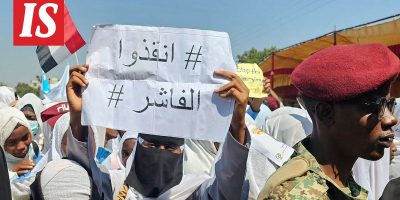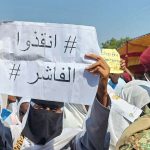
تذكرني حالة شبابنا اليوم بمسرحية مرت علي في حياتي الدراسية، وهي مسرحية
“ Look Back in Anger – انظر خلفك في غضب”، من تأليف الكاتب البريطاني “جون أوزبورن- John Osborne، والتي عُرضت لأول مرة سنة 1956 في لندن. وفي محاولة لإعطاء فكرة عامة عن هذه المسرحية، تُعدّ المسرحية من أبرز الأعمال التي دَشَّنتْ لما يُعرف بحركة “الشباب الغاضب-“Angry Young Men في الأدب البريطاني بعد الحرب العالمية الثانية.
بطل المسرحية جيمي بورتر (Jimmy Porter) الشاب المثقف والغاضب، ينتمي إلى الطبقة العاملة، ومتزوج من أليسون (Alison) التي تنتمي إلى الطبقة الوسطى المحافظة. ويمثل الصراع الطبقي أحد الموضوعات الرئيسية فيها، حيث يشعر جيمي بالاستياء من النظام الطبقي الذي يُهمّش أبناء طبقته. ونتيجة للاغتراب والغضب الاجتماعي يعكس جيمي إحباط جيل كامل من شباب ما بعد الحرب العالمية الثانية.
العلاقات العاطفية الممزقة بينه وبين زوجته أليسون مليئة بالصراع، وتعكس فقدان التواصل. ومن بين موضوعات هذه المسرحية أيضًا التمرد على القيم التقليدية، وبالتالي تهاجم المسرحية القيم التي كانت سائدة حينها في المجتمع البريطاني. أما عن أسلوب المسرحية فهي واقعية، وتدور أحداثها في حيز ضيق، وتعتمد على الحوار الطويل والمكثّف، والانفعالات الحادة التي تُظهر الغضب والخيبة بصدق غير مسبوق في المسرح البريطاني آنذاك.
ما ذكَّرني بهذه المسرحية في هذا المقام هو ما نشاهده من تمرد الشباب الإرتري في المهجر على ما سبقتهم من نضالات، ومن سبقوهم في العمر والتجربة والتاريخ، ويتم التعبير عن هذا التمرد والغضب عن طريق ازدراء رموزه والسخرية منهم. كم من شباب وطنيين وغيورين صادفتهم في هذه الحركات الشبابية يعبرون عن أنفسهم بصورة غاضبة وغير متوازنة، الأمر الذي يُنفِّر عنهم أصحاب التجارب، لأنهم يخشون من أن يتعرضوا إلى الإساءات، رغم كل ما قدمه هؤلاء في حياتهم من نضالات وتضحيات، يبتعدون عنهم بغية السلامة. هذه واحدة من نكساتنا كإرتريين عندما نرى كيف انعدمت الثقة على كافة المستويات، السياسية، والاجتماعية، والثقافية، والدينية، وبين الأجيال، وهذه بحق كارثة الكوارث. أتمنى أن يكون هذا مجرد إحساس شخصي مني، ويخالفني فيه الآخرون الرأي ويرون أن الوضع ليس بهذا السوء.
ما دفعني لتذكُّرِ المسرحية والاستشهاد بها هنا هو للتعريف بأن كل الشعوب، وعند مرورها بأزمات وصدمات كبرى تفقد توازنها، وتتخبط في بحثها عن المخارج، وتخوض في الكثير من المحاولات والتجارب الخاطئة، حتى تهتدي أخيرًا إلى طرق وتفاهمات تعيد إليها توازنها، ونحن كإرتريين أحس بحق بأننا نمر الآن بمثل هذه الحالة.
أما ما دفعني لكتابة هذا المقال هو وجود مقالين سبقا كتابتي لهذا المقال، وكاتباه هما أخوان عزيزان تابعت كتاباتهما من قبل، وهما الإخوة الدكتور عبد الرازق كرار، والأستاذ بيان نجاش، بالإضافة إلى ندوة قدمها الدكتور صلاح نور في منصة حوار لوعي مشترك، وكانت الورقتان والندوة تدور حول أزماتنا من ضبابية في تعريف مشكلاتنا، إلى مسألة انعدام الثقة بين مكوناتنا الاجتماعية، وغيرها من الهموم.
تعتبر الثقة أساسًا لأي تعافٍ وطني، وتحقيق أي تقدم أيًّا كان نوعه، والاعتراف بالتضحيات المشتركة التي قُدِّمتْ خلال فترة الكفاح المسلح الذي دام 30 عامًا، تعتبر الرصيد المشترك الذي يمكن البناء عليه لإعادة بناء الثقة من جديد إن أحسنا التصرف. كما أنه يجب على الإرتريين الإقرار بأن الانقسامات بكافة أنواعها الدينية منها والإقليمية والسياسية حقيقية، ومتجذرة تاريخيًّا، ولا يمكن إنكار وجودها بأي حال من الأحوال، إلا أنها ليست عصية على الحل.
وإذا حاولنا النظر إلى المصادر التاريخية للانقسامات التي نعاني منها نحن الإرتريون، يمكن الحديث عن الإرث الاستعماري الذي كان مبنيًّا على استراتيجية “فرّق تسد”. فالإيطاليون على سبيل المثال حافظوا على العلاقات الهرمية والطبقية، وأداروا المجتمع الإرتري بشكل فوقي، ولم يحاولوا أبدًا أن يقتربوا منه ويُعَلِّموه، حتى من منظور فائدتهم الاستعمارية التي كان من الممكن أن تُطيل أمد سيطرتهم علينا حتى بعد خروجهم، كما فعل نظراؤهم البريطانيون والفرنسيون الذين ربطوا مستعمراتهم بهم، حيث نجد أن أقصى ما يطمح إليه المُستعمَر هو أن يكون مثل سيده، فيتفانى لدخول أكبر مؤسساته التعليمية التي ظلت مفتوحة بشكل مسيطر عليه للغاية، لإنتاج متعلمين يتنافسون في خدمة المُستعمِر السابق.
وبحكم قصر مدتهم في إرتريا لم يُتَح للبريطانيين ممارسة تأثيرهم البعيد المدى الذي نجده في أغلب مستعمراتهم السابقة كالسودان وغيره، إلا أنهم وفي المدة القصيرة التي أداروا فيها إرتريا قاموا بالتلاعب بالهويات العرقية والدينية. هناك حقائق لا يمكن إنكارها أن التعليم أخذ قفزته الأولى في هذه الحقبة، كما أن الوعي السياسي تنامى فيها، إلا أن الدوافع السياسية التي دفعت بذلك تعتبر مادة خلافية، لذا من الأفضل عدم الخوض فيها نسبة لتباين التقديرات حولها.
أما سياسات الإمبراطور هيلي سلاسي فقد استندت على تشتيت الإرتريين عبر الاستقطاب الديني والمناطقي، وإنكاره الدائم لوجود هوية إرترية متميزة، وهو أمر اعتاد الإثيوبيون البناء عليه حتى يومنا هذا، وإثارته من جديد كلما احتدم الصراع بينهم وبين الإرتريين حتى بعد أن استقلت إرتريا. أبرز ما يميز حقبة الإمبراطور هيلي سلاسي هي التدخلات الجيوسياسية التي شهدتها فترة حكمه لإرتريا، والدور الأمريكي والإسرائيلي مشهود له في الحفاظ على سيطرة إثيوبيا على إرتريا في تلك المرحلة.
لذا، ينبغي على الإرتريين أن يدرسوا بعناية، بعد حدوث التغيير السياسي المنشود في البلاد، الأضرار التي لحقت بهم في كل الحقب الاستعمارية، للمطالبة بالتعويضات المادية والمعنوية، واستعادة ما نهب منهم من ثروات بعضها معروف وأكثرها مجهول. والأهم في هذا المضمار هو معرفة حجم الظلم والأضرار التي تعرضوا لها لتكون لديهم صورة واقعية لما حاقت بهم من مظالم، وكيف أثرت هذه المظالم على الذات الجماعية للإرتريين.
وفي هذا السياق هناك تهم توجه للإرتريين، خاصة من جيرانهم الجنوبيين، والأدهى أن بعض الإرتريين، بحسن نية أم لغيرها من الأسباب، أصبحوا أيضًا يرددونها، وهي أن إرتريا صنيعة المُستعمِر، وكأنه ليس لدى الإرتريين تاريخ، وتراث، وثقافة يفخرون به. والأدهى من ذلك والأمر أنه بنيت على مثل هذه المقولات قناعات سياسية، وأصبحت في بعض الأحيان مسبة يخجل منها البعض، على الرغم من أن كثيرًا مما يتردد في هذا السياق ينطبق أيضًا على غيرنا من الشعوب المستعمرة، وإرتريا ليست استثناءً في هذا المضمار سلبًا أم إيجابًا.
أما عن حقبة النظام الاستبدادي في إرتريا، فهذه العقود الثلاثة من الديكتاتورية عمّقت انعدام الثقة بين المكونات، وعطلت الحوار بين المكونات الإرترية أفرادًا وجماعات، وقوّضت التكاتف الذي حققه الإرتريون خلال حرب التحرير. أما عن الدور الذي لعبه النظام الحالي في فقدان الثقة وضياعها، يمكن القول إنه هدم الثقة التي بُنيت في الخنادق خلال فترة الكفاح المسلح. فالمسلمون والمسيحيون، وسكان المرتفعات والسهول، والرجال والنساء، قاتلوا معًا. أما واقعنا الحالي في ظل هذا النظام يتميز بحالة من التشرذم والشك واستقطاب الإرتريين في الشتات على أسس لا تشكل فيها الهوية الوطنية بديلًا جذابًا. وهنا يجب بذل جهود حقيقة لتذكير الإرتريين بأن التلاحم الذي ظهر بينهم إبان فترة الكفاح المسلح لم يُمنح لهم هبة من أحد، بل بُني من خلال النضال المشترك، ويمكن إعادة بنائه من جديد إن أحسنا التصرف.
وبالنسبة لأهمية الثقة، فبدونها يستحيل تحقيق وحدة الوطن والمواطن، وتحقيق الديمقراطية، والتنمية المستدامة، فالثقة هي الترياق لحالات الخوف والشك والتشرذم التي يعاني منها الإرتريون، وهناك خطورة من أن ترث الأجيال القادمة الكثير من الصدمات والانقسامات، إذا لم تبدأ عملية التعافي منها الآن. أما بالنسبة لمسارات بناء الثقة تبدأ بالاعتراف بحقيقة أن التجزئة هي السائدة على كافة المستويات، وأن بناء الثقة أمر صعب في واقعنا الحالي، ولا يمكن أن يتأتى إلا عبر حوار صادق يتناول الجراحات التاريخية دون مواربة. من أهمها خلق مساحات لسرد القصص والتجارب، والاستماع إليها باهتمام، والاعتراف بالمظالم دون إصدار أحكام، وبهذه الطريقة يمكننا بناء سردية مشتركة، لأن السردية المشتركة تعتبر بالغة الأهمية لبناء الأوطان.
والسردية المشتركة من شأنها أن توحد القيم الوطنية، وتعزز القسمات المشتركة في الهوية الوطنية التي يستحيل بدونها أن نوجد قيمًا مشتركة توحدنا، وحتى لو عجزت هذه الجهود عن تحقيق المعجزات في توحيدنا، فعلى الأقل، وعبر الحوارات الواعية والهادفة يتم تقريب المسافات بيننا، بناءً على التاريخ النضالي المشترك.
كما أن السردية المشتركة تُعِين على إعادة تعريف الهوية الإرترية ليس على أساس المنطقة أو الدين، بل من خلال القيم الإنسانية المشتركة، وقدرتها على الصمود عند تعرضها للصدمات، وهي (أي الصدمات) متكررة في تاريخنا، فكلما اعتقدنا أننا قطعنا شوطًا في هذا الطريق، أي إيجاد السردية المشتركة، نكتشف بأننا قطعنا المسافات في خيالنا وتصوراتنا وليس على أرض الواقع، وأننا ما زلنا في الكثير من الأحايين نراوح مكاننا.
نحن بحاجة إلى إيجاد منصات تشجع على الحوارات العابرة لانقساماتنا المتمثلة في الشتات مقابل الداخل، والشباب مقابل كبار السن، والفصائل السياسية مقابل المنظمات المدنية، وأهمية تعزيز الحوارات فيما بينها لإيجاد القواسم المشتركة، واعتبار تنوعنا مصدرًا من مصادر قوتنا، وليس مهددًا للهوية المشتركة. ومن بين الوسائل المساعدة لهذه الجهود معالجة أخطاء الماضي بروح تصالحية، وليس انتقامية، والتعود على المحاسبة كثقافة وممارسة، والابتعاد قدر المستطاع عن رمي الأفراد والجماعات بالتهم جزافًا (اللوم الجماعي).
بناء الثقة لا يمكن أن يتحقق إلا إذا كانت هناك مؤسسات ترعاه وتُنَمِّيه، من بينها إنشاء هياكل مدنية شفافة وتشاركية مثل المجالس المحلية، والمبادرات المجتمعية، وهذا يعزز دور ومكانة المنظمات الأهلية التي ترمم التصدعات والانقسامات في حال حدوثها كالحركات الدينية، والثقافية، والنسائية، والشبابية. وبالنسبة لإرتريي المهجر ينبغي أن يكونوا بناة جسور، لا مجرد صدى للانقسامات القاتلة التي نعاني منها في الداخل والخارج، واستخدام منصاتهم لفتح مسارات متقدمة للحوار تتجاوز حالة الانقسام، قبل أن تتفاقم أكثر مما هي عليه اليوم.
وبالنسبة للخطوات العملية للمضي قدمًا:
- أهمية القيام بمبادرات بناء الثقة في نطاق محدود (حوارات مجتمعية، مشاريع مشتركة، تبادلات ثقافية).
- تشجيع التعاون بين التجمعات الدينية والإقليمية، والعابر أحيانًا لهذه التجمعات.
- التعليم والتوعية التي تُبرز مزايا التعددية الإرترية، والتضحيات المشتركة التي قدمها الإرتريون معًا من أجل تحرير بلادهم.
- استخدام الفنون والأدب والتاريخ المكتوب وحتى الشفوي منه لتذكير الإرتريين بتضحياتهم المشتركة في فترة النضال.
الخاتمة: بناء الثقة ليست حلًّا سهلًا وسريع التحقق، بل مهمة تتم عبر أجيال، وقد أثبت الإرتريون ذات يوم أنهم بتلاحمهم وتضحياتهم قادرون على التغلب على الظلم والظالم مهما تجبر، ومهما كانت قوته، ومهما كان داعموه من القوة والجبروت. وبالحوار، والانضباط، والعمل المشترك يمكننا إعادة بناء الثقة للمساهمة في بناء بلد حر وعادل.















